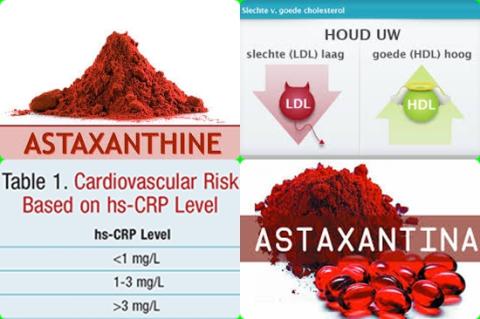
Objectives:
Previous studies lack consistent conclusions as to whether astaxanthin is actually linked to various health benefits as claimed. Therefore, this review article has been conducted.
Is there a causal relationship between astaxanthin consumption and improvements in risk factors for diabetes or cardiovascular disease?
Study design:
This review article included 14 RCTs.
Results and conclusions:
The investigators found that astaxanthin consumption was not associated with FBS, HbA1c, TC, LDL-C, TG, BMI, BW, DBP and SBP.
The investigators found that astaxanthin consumption was associated with an increase in HDL cholesterol levels [WMD = 1.473 mg/dL, 95% CI = 0.319 to 2.627, p = 0.012].
The investigators found that astaxanthin consumption during ≥12 weeks was associated with a decrease in CRP levels [WMD = -0.528 mg/L, 95% CI = -0.990 to -0.066].
The investigators found that >12 mg/day astaxanthin consumption was associated with a decrease in CRP levels [WMD = -0.389 mg/dL, 95% CI = -0.596 to -0.183].
The investigators concluded that astaxanthin consumption is causally associated with an increase in HDL cholesterol levels (good cholesterol) and a decrease in CRP levels for >12 mg/day astaxanthin consumption during ≥12 weeks. Significant associations are not observed for other outcomes.
Original title:
The effects of astaxanthin supplementation on obesity, blood pressure, CRP, glycemic biomarkers, and lipid profile: A meta-analysis of randomized controlled trials by Xia W, Tang N, [...], Zhu Y.
Link:
https://pubmed.ncbi.nlm.nih.gov/32755613/
Additional information of El Mondo:
Find here more information/studies about astaxanthin consumption and cholestrerol.